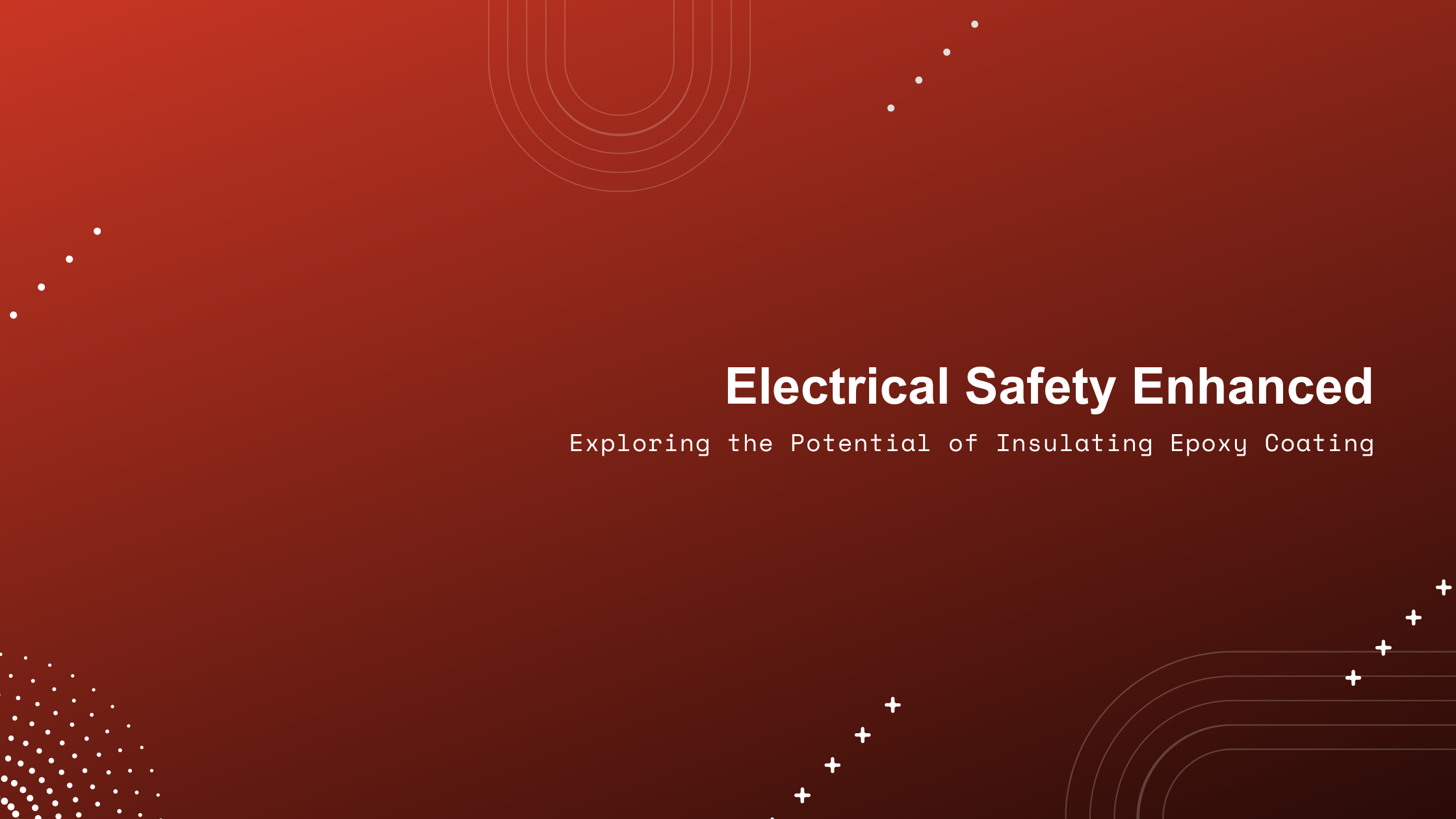
Electrical Safety Enhanced: Exploring the Potential of Insulating Epoxy Coating
In today’s rapidly advancing world, where electricity powers everything from our homes to our industries, ensuring electrical safety has become more critical than ever. Electrical systems are omnipresent, powering our appliances, vehicles, and machinery, but they also pose inherent risks if not properly managed. From the prevention of electrical hazards to the safeguarding of equipment against environmental factors, the significance of robust insulation cannot be overstated. Enter insulating epoxy coatings, a cutting-edge solution revolutionizing electrical safety across industries.
Understanding the Role of Insulating Epoxy Coatings
Insulating epoxy coatings are specialized solutions designed to enhance electrical safety by effectively insulating electrical components. They play a pivotal role in preventing electrical leakage, maintaining proper insulation, and protecting against environmental factors such as dust, dirt, humidity, and extreme temperatures. These coatings are engineered to adhere to various materials, including metals, plastics, and ceramics, ensuring secure and long-lasting bonds across diverse surfaces.
Material Compatibility and Precision Application
Critical to their efficacy is the compatibility of insulating epoxy coatings with a myriad of materials. Whether applied on plastics, metals, or ceramics, these coatings establish a reliable insulation layer, ensuring comprehensive protection across diverse surfaces.
Moreover, precision in application is paramount for achieving uniform insulation and minimizing wastage, thereby optimizing safety and resource utilization.
Dynamism in Applications
Insulating epoxy coatings find versatile applications across various industries including automotive, electrical & electronics, energy, and aerospace. Their widespread adoption underscores their efficacy in providing robust insulation solutions tailored to diverse operational requirements.
Advantages of Insulating Epoxy Coatings in Electrical Systems
Insulating epoxy coatings offer a plethora of benefits that contribute to the overall safety, reliability, and performance of electrical systems:
1. Prevention of Electrical Hazards
By sealing and insulating electrical components, insulating epoxy coatings prevent electrical leakage, reducing the risk of power loss, electrical hazards, and decreased efficiency. They create a protective barrier that prohibits current flow in areas where it shouldn’t be, mitigating the chances of short circuits and ensuring safe operation.
To Know more about Epoxy Adhesive, Read Blog: Transforming Mobility: The Impact of Epoxy Adhesive Technology on Electric Motor Performance
2. Environmental Protection
Insulating epoxy coatings act as a shield, safeguarding electrical equipment from environmental factors such as moisture, chemicals, and extreme temperatures. This protection is crucial for maintaining the reliability and longevity of electrical systems, especially in harsh operating conditions.
3. Corrosion Resistance
Most epoxy coatings are highly resistant to corrosion, protecting electrical systems from rust and degradation caused by exposure to moisture and chemicals. This corrosion resistance extends the lifespan of electrical equipment, reducing maintenance costs and enhancing overall durability.
4. Flexibility & Adhesion
These coatings exhibit flexibility, allowing them to conform to the shape of electrical components and create a tight seal. Their strong adhesion properties ensure reliable bonding to various materials, ensuring optimal insulation and protection against electrical hazards.
5. High Dielectric Strength
Insulating epoxy coatings boast high dielectric strength, enabling them to withstand high voltages without damage. This feature is essential for electrical systems operating at elevated voltage levels, ensuring reliability and safety in demanding applications.
6. Thermal Resistance
Insulating epoxy coatings can withstand elevated temperatures without degrading, making them suitable for use in electrical components that generate heat during operation. This thermal resistance ensures long-term performance and reliability in high-temperature environments.
7. Easy Application
The application of insulating epoxy coatings is relatively straightforward, with various methods available for applying them to surfaces. This ease of application streamlines the insulation process, allowing for efficient protection of electrical components without requiring extensive expertise.
To Know more about EV Thermal Management, Read Blog: EV Thermal Management: Role of Adhesives in Electric Vehicle.
8. Safety Compliance
Many insulating epoxy coatings meet industry standards and regulatory requirements for electrical insulation and fire resistance. By adhering to these standards, these coatings ensure that electrical systems remain compliant with safety regulations, minimizing the risk of accidents and ensuring user safety.
9. Improved Lifespan
By providing protection against electrical, environmental, and thermal stressors, insulating epoxy coatings contribute to the extended lifespan of electrical systems and components. This leads to cost savings through reduced maintenance and replacement, making them a cost-effective solution for
electrical safety.
Conclusion
Insulating epoxy coatings represent a pivotal advancement in bolstering electrical safety and performance. Their multifaceted benefits encompass leakage prevention, corrosion resistance, and thermal resilience, underscoring their indispensability across diverse applications. As guardians of electrical integrity, these coatings epitomize innovation in enhancing system reliability and longevity, heralding a safer and more efficient future for electrical systems.





Post a comment